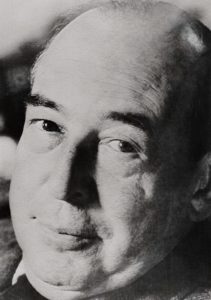“Once in our world, a Stable had something in it that was bigger than our whole world.” So wrote C.S. Lewis in the concluding book of his Narnia Chronicles. That the author was a Christian and that Christianity infused many of his most notable works is apparent. And yet he had a somewhat grim view of the celebration of Christmas – or, at least, the modern iteration.
In a personal correspondence, Lewis highlighted his annual dilemma, writing:
“Just a hurried line … to tell a story which puts the contrast between our Feast of the Nativity and all this ghastly ‘Xmas’ racket at its lowest. My brother heard a woman on a bus say, as the bus passed a church with a crib outside it … ‘They bring religion into everything. Look, they’re dragging it even into Christmas now.’”
 And this “messaging issue” was firmly at the heart of Lewis’ paradoxical view of the Christmas season. In an essay from 1957, the author argued that the Christian elements of the celebration were both “important and obligatory,” but dismissed the gift-giving and card-sending as a “commercial racket.” “The idea that not only all friends but even all acquaintances should give one another presents, or at least send one another cards, is quite modern and has been forced upon us by the shopkeepers,” Lewis wrote.
And this “messaging issue” was firmly at the heart of Lewis’ paradoxical view of the Christmas season. In an essay from 1957, the author argued that the Christian elements of the celebration were both “important and obligatory,” but dismissed the gift-giving and card-sending as a “commercial racket.” “The idea that not only all friends but even all acquaintances should give one another presents, or at least send one another cards, is quite modern and has been forced upon us by the shopkeepers,” Lewis wrote.
“Can it really be my duty to buy and receive masses of junk every winter just to help the shopkeepers?” he asked in his essay “What Christmas Means to Me.”
CS Lewis – Christmas With a Purpose
“When we carry out our ‘religious duties’ we are like people digging channels in a waterless land, in order that when at last water comes, it may find them ready,” he noted in his Reflections on the Psalms. And perhaps the coming of Christ was, for Lewis, the “digging” of a channel for man to prepare himself.
“The birth of Christ is the central event in the history of earth — the very thing the whole story has been about,” Lewis explained in an interview. He saw this as man’s defining moment when – as he wrote in Mere Christianity – “The Son of God became a man to enable men to become sons of God.”
Lewis was very much self-aware when it came to his treatment of Christmas as a celebration of God’s grace rather than a consumer-driven frenzy. So much so, in fact, that in 1954, he wrote a semi-satirical essay on how the modern world fails to grasp the distinction. In “Xmas and Christmas: A Lost Chapter from Herodotus,” the author relates a tale of the fictional kingdom of “Niatirb” – “Britain” spelled in reverse – and the two holidays the inhabitants celebrate that happen to fall on the same day:
This fifty days of preparation is called in their barbarian speech the Exmas Rush… But when the day of the festival comes, then most of the citizens, being exhausted with the Rush, lie in bed till noon. But in the evening they eat five times as much supper as on other days and, crowning themselves with crowns of paper, they become intoxicated. And on the day after Exmas they are very grave, being internally disordered by the supper and the drinking and reckoning how much they have spent on gifts and on the wine…
But the few among the Niatirbians have also a festival, separate and to themselves, called Crissmas, which is on the same day as Exmas. And those who keep Crissmas, doing the opposite to the majority of the Niatirbians, rise early on that day with shining faces and go before sunrise to certain temples where they partake of a sacred feast. And in most of the temples they set out images of a fair woman with a new-born Child on her knees and certain animals and shepherds adoring the Child…

C.S. Lewis (Getty Images)
The author concludes with an incredulous personal note, writing, “But what [Herodotus relates is] that Exmas and Crissmas are the same, is not credible… [I]t is not likely that men, even being barbarians, should suffer so many and great things in honour of a god they do not believe in…”
Despite his success as a writer of fantasy, Lewis was above all determined to face the realism of each situation. He saw that the birth of Christ was the most significant event in human history, and also that many of his countrymen would gladly ignore this as inconvenient in favor of a mad rush to purchase baubles of no spiritual value. Yet he remained a cheerful character nonetheless who – in his own words – says “that I much approve of merry-making.”
Accepting that for some, Christmas would remain the bane of the observant and the boon of the shopkeepers, Lewis wrote to his acquaintances, “Is it still possible amid this ghastly racket of ‘Xmas’ to exchange greetings for the Feast of the Nativity? If so, mine, very warm, to both of you.”
Fine words, indeed, and may we, at Liberty Nation, express our best wishes and greetings, very warm, to you.




